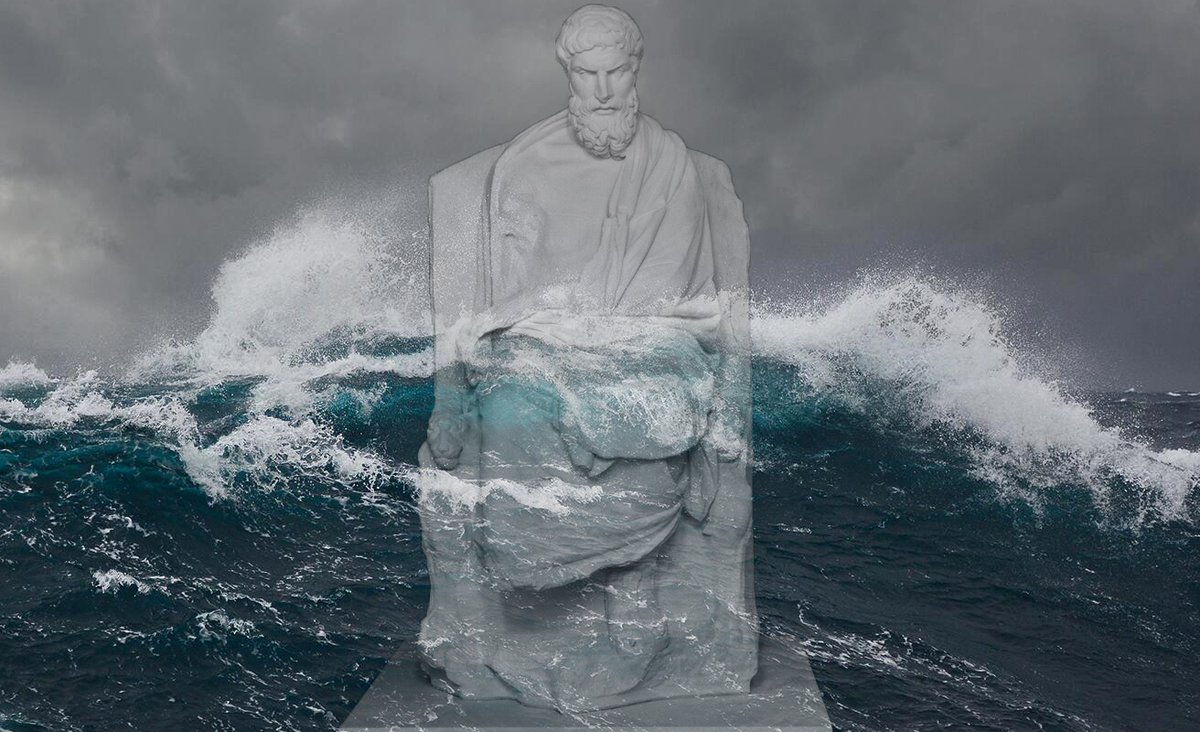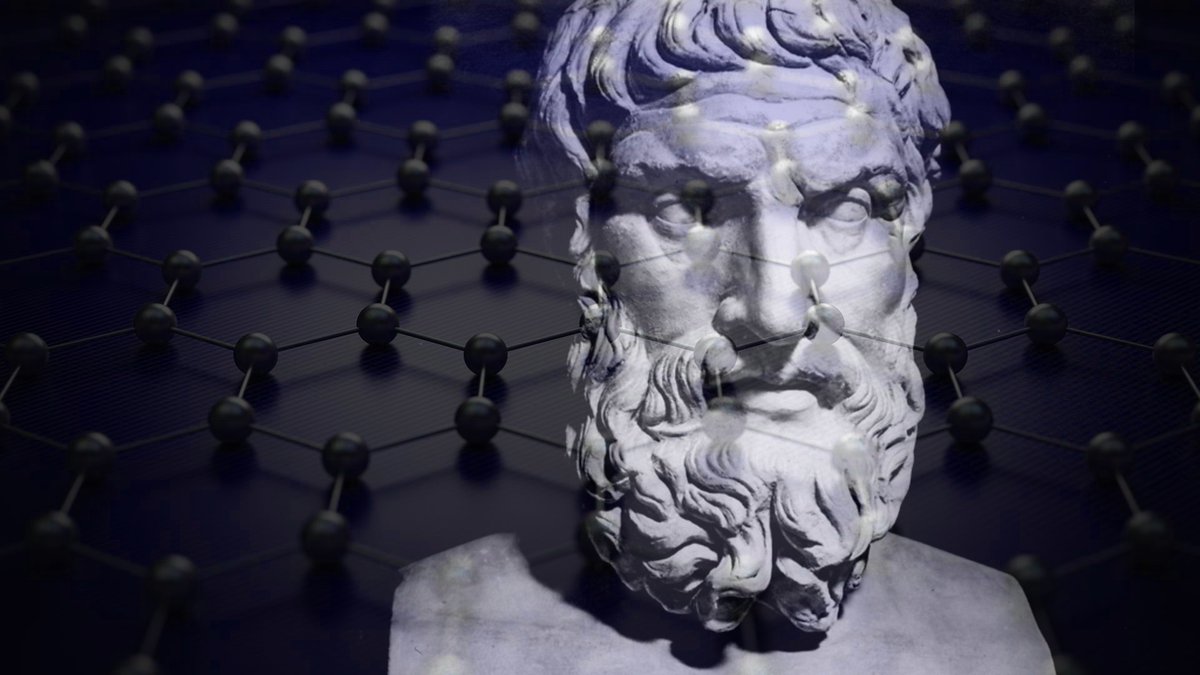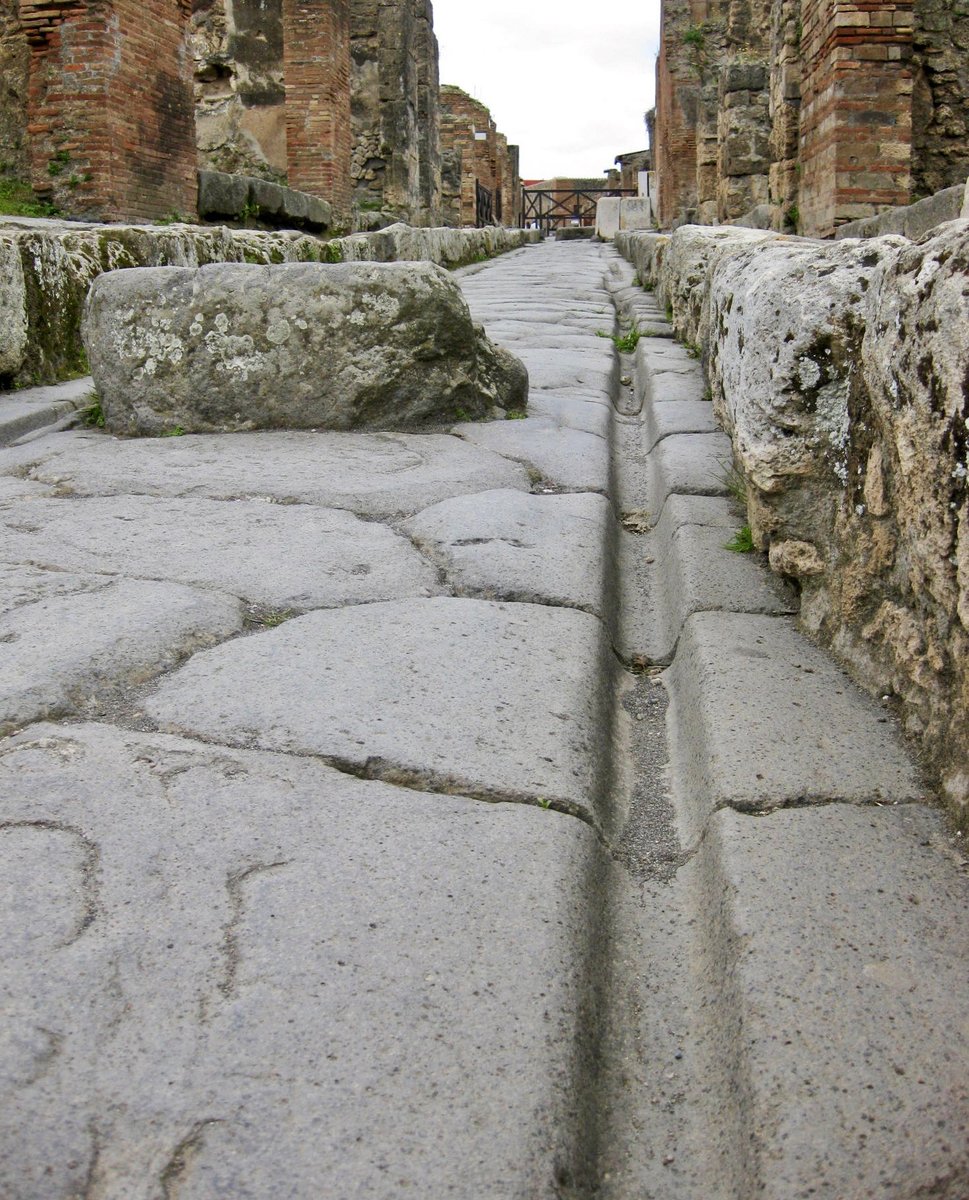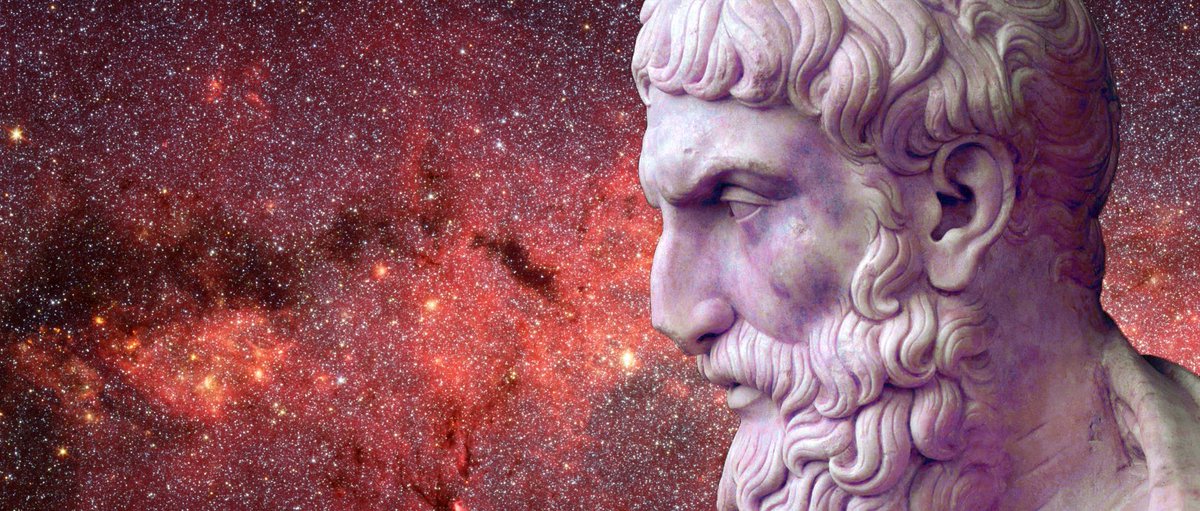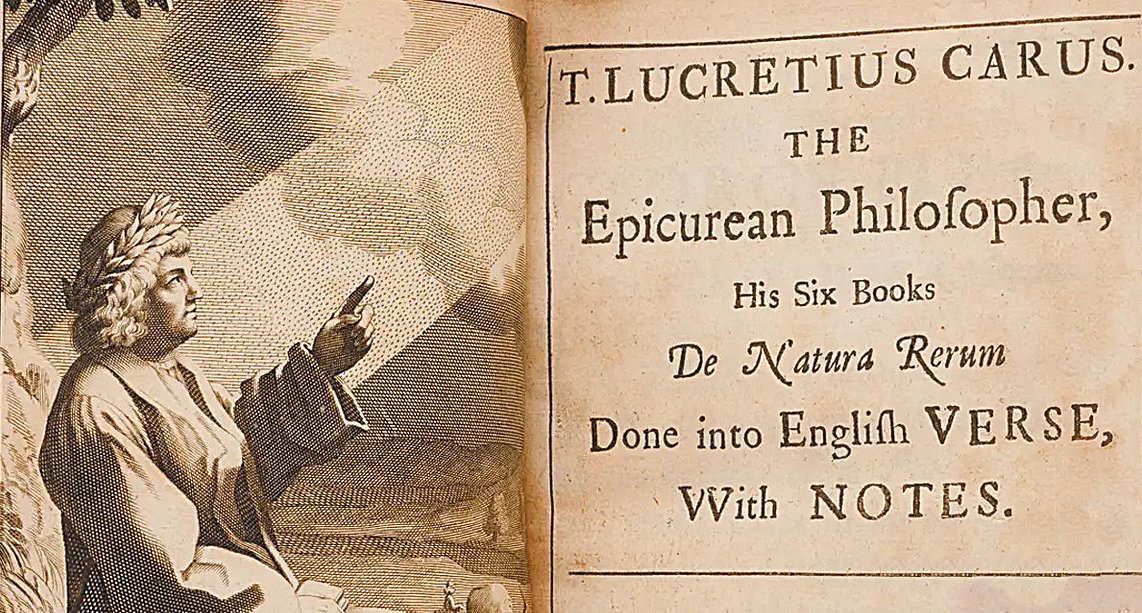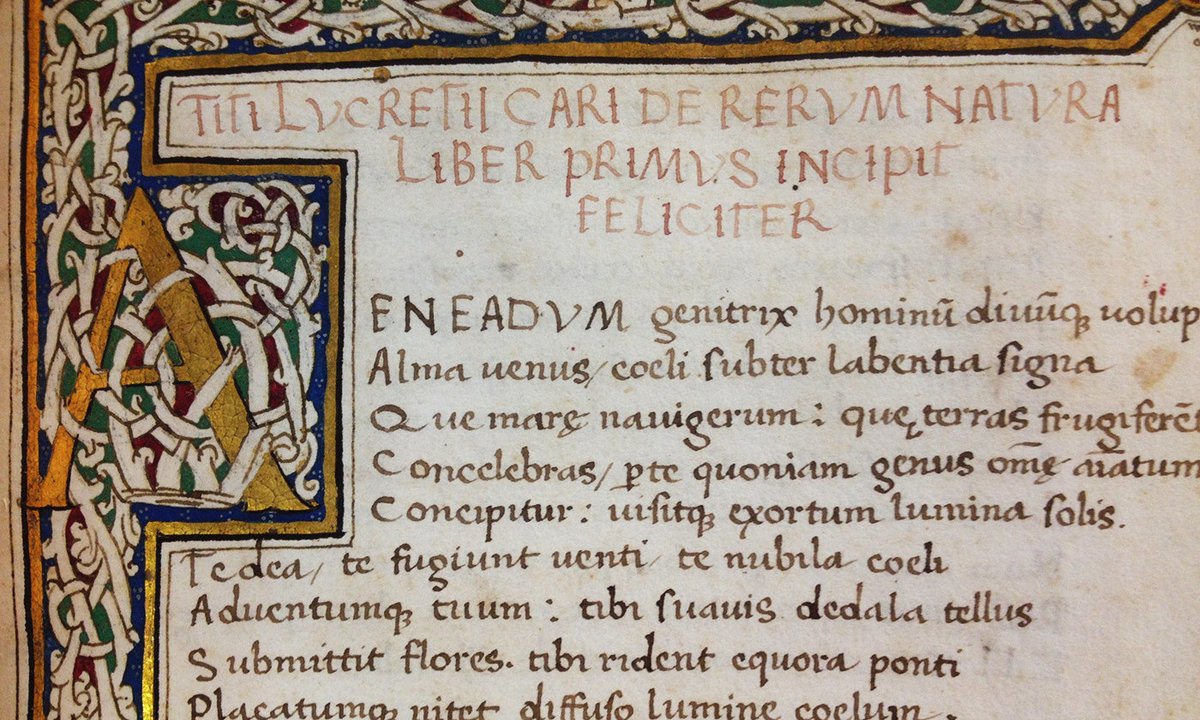1) Lucretius argues for the existence of atoms...in 60 BC:
"Things cannot be created out of nothing or reduced to nothing. You may distrust my words since atoms cannot be seen with your eyes? Think however of all the tiny particles you do not see, but which we know must exist.."
"Things cannot be created out of nothing or reduced to nothing. You may distrust my words since atoms cannot be seen with your eyes? Think however of all the tiny particles you do not see, but which we know must exist.."
2) "First of all the raging wind that whips the sea, overturns ships and scatters clouds. Sometimes it races across plains in a whirling tornado and knocks flat trees with a furious howl and menacing roar; all invisible particles of wind sweeping the land, sea and clouds..."
3) "Your clothes left by a surf-beaten shore grow damp. The same clothes, spread out in the sun, become dry. But did we see how the water soaked in, or how it departed with the sun's heat? The water must be distributed into tiny particles which the eyes cannot possibly see."
4) "More examples: after many annual revolutions around the sun, the ring on my finger becomes thin due to constant contact. Dripping water hollows out a rock. An iron plow imperceptibly shrinks with hard use in the field. We see the solid paving of roads gradually worn down..."
5) "..But our human sense of sight begrudges us any glimpse of particles leaving at any particular time. No scrutiny by our eyes can perceive the particles that time and nature gradually adds to things, increasing them little by little..
6) "..Neither can we perceive the particles lost to wasting old age, like rocks hanging over the sea crumbling due to the corrosive salt water, or the time at which we lose them. Therefore, we must conclude that nature works through invisible but material particles called atoms."

 Read on Twitter
Read on Twitter
